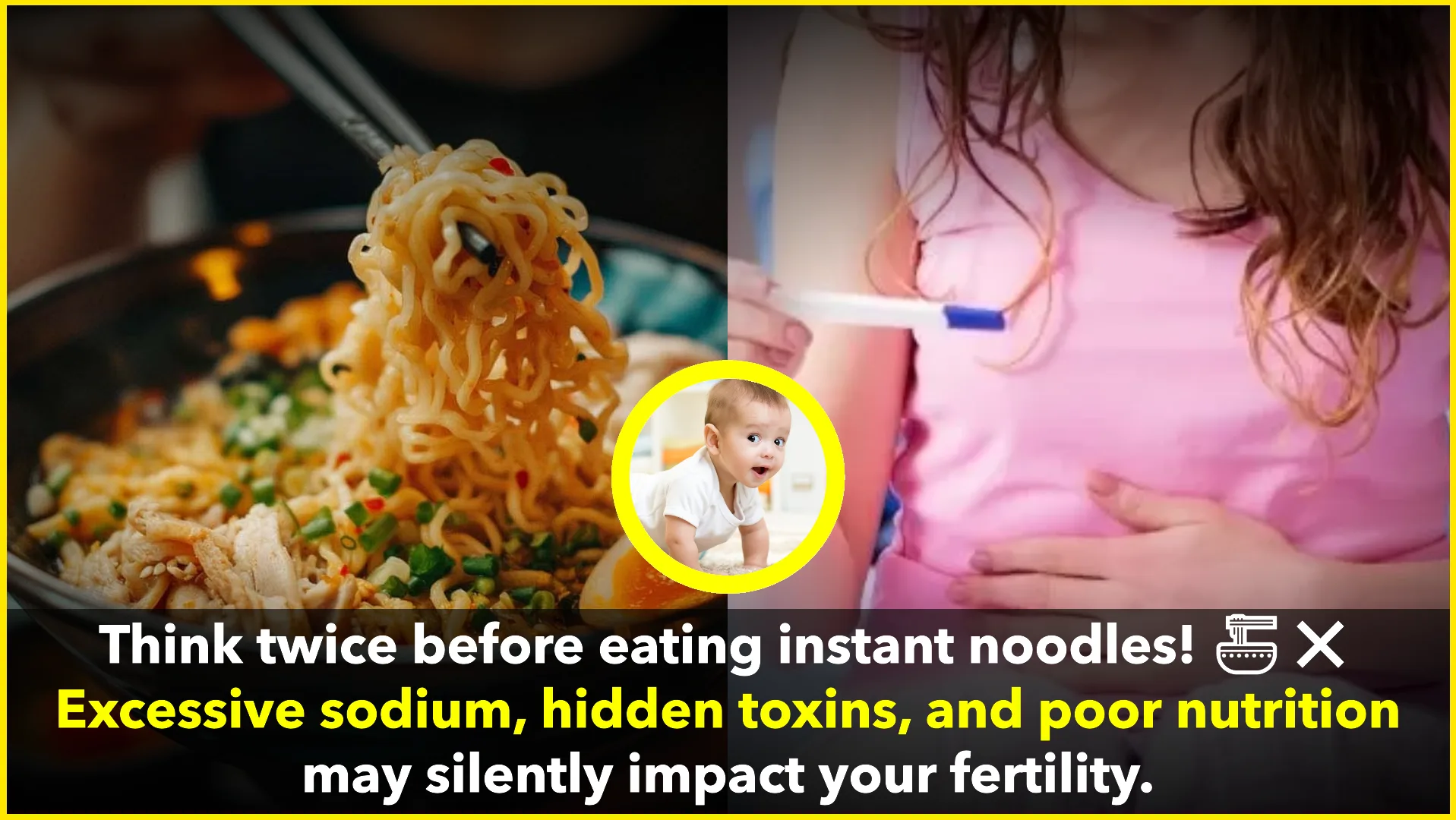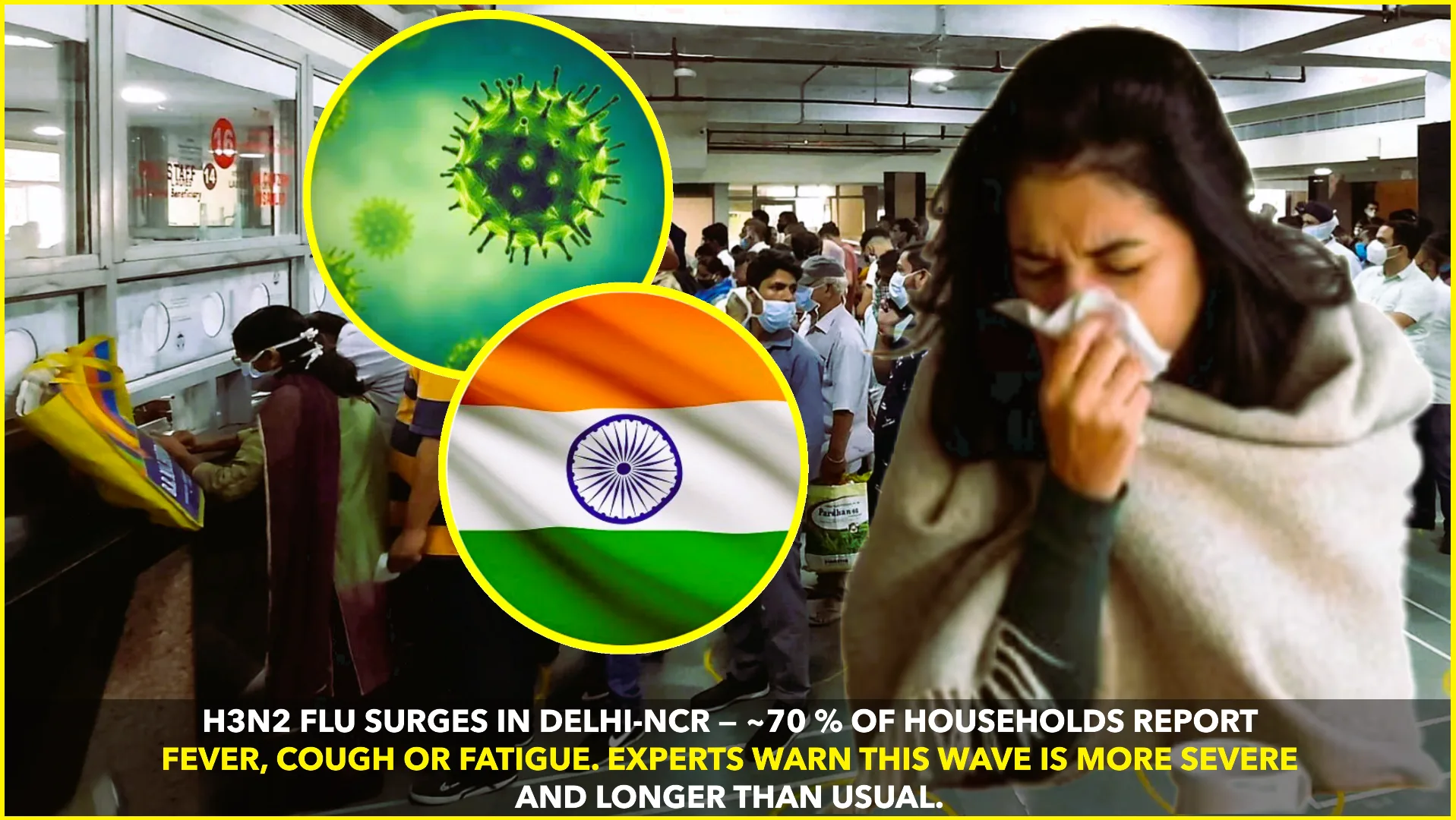Instant noodles have long been a go-to meal for millions worldwide. Their convenience, affordability, and taste make them a staple in many households. However, while they may satisfy hunger quickly, the long-term effects on health—especially fertility—are raising serious concerns. Packed with preservatives, artificial flavors, and excessive sodium, instant noodles may silently impact reproductive health in ways many do not realize.
High Sodium Levels and Fertility Issues
One of the biggest concerns with instant noodles is their high sodium content. A single serving can contain over 1,500 milligrams of sodium—close to the daily recommended intake. Consuming excess sodium regularly can lead to high blood pressure and poor blood circulation, both of which have been linked to reduced fertility in men and women.
In women, high sodium intake can lead to hormonal imbalances that affect ovulation and the menstrual cycle. For men, excessive sodium consumption has been linked to lower sperm motility and quality. Poor blood circulation can also reduce oxygen and nutrient supply to reproductive organs, further diminishing fertility potential.
Nutrient Deficiency and Reproductive Health
Instant noodles are highly processed and stripped of essential nutrients. They often contain refined carbohydrates but lack protein, fiber, vitamins, and minerals necessary for maintaining a healthy reproductive system. Deficiencies in key nutrients such as folic acid, zinc, and vitamin B12 can impair fertility.
Folic acid is crucial for both men and women trying to conceive. It plays a key role in DNA synthesis and cell division, which are essential for sperm and egg development. Zinc, another vital nutrient, is necessary for testosterone production and sperm formation in men. A diet lacking these essential nutrients can significantly reduce the chances of conception.
Harmful Preservatives and Additives
Most instant noodles contain preservatives and additives such as tertiary-butylhydroquinone (TBHQ), monosodium glutamate (MSG), and artificial flavor enhancers. These chemicals help extend shelf life and improve taste, but they also pose risks to reproductive health.
Studies have shown that TBHQ, a common preservative in instant noodles, can disrupt hormonal balance and negatively impact egg quality in women. MSG, widely used to enhance flavor, has been linked to metabolic disorders and oxidative stress, which can harm sperm quality and increase the risk of infertility.
Hidden Toxins and Their Effect on Hormonal Health
Apart from preservatives, the packaging of instant noodles also poses risks. Many brands use plastic or styrofoam cups, which contain harmful chemicals like bisphenol A (BPA) and phthalates. When hot water is poured into these containers, these chemicals can leach into the food.
BPA is an endocrine disruptor that mimics estrogen in the body, leading to hormonal imbalances. This can cause irregular menstrual cycles, reduced egg quality, and even increase the risk of polycystic ovary syndrome (PCOS). In men, exposure to BPA has been associated with decreased sperm count and testosterone levels.
The Link Between Processed Foods and PCOS
Polycystic ovary syndrome (PCOS) is one of the leading causes of infertility in women today. Diets high in processed foods, such as instant noodles, contribute to insulin resistance, which is a major factor in PCOS development. Insulin resistance can lead to irregular ovulation and difficulties in conceiving.
Additionally, excessive consumption of instant noodles may contribute to weight gain, another risk factor for PCOS and fertility issues. Research suggests that women with a higher body mass index (BMI) often experience disrupted hormonal patterns that can reduce fertility.
Making Healthier Choices
While occasional consumption of instant noodles may not cause immediate harm, regular intake can have long-term effects on reproductive health. To protect fertility, consider these healthier alternatives:
- Opt for whole foods: Include fresh vegetables, lean proteins, and whole grains in your diet.
- Choose homemade meals: Preparing quick and nutritious meals at home can help reduce reliance on processed foods.
- Hydrate well: Drinking plenty of water can help flush out toxins and maintain overall health.
- Limit processed food intake: Reducing the consumption of instant noodles and other processed foods can improve hormonal balance and reproductive health.
Conclusion
Instant noodles may be a quick and satisfying meal, but their potential impact on fertility should not be ignored. High sodium levels, nutrient deficiencies, harmful additives, and hidden toxins can all contribute to reproductive health issues. Being mindful of dietary choices and opting for nutrient-rich alternatives can help maintain overall well-being and improve fertility outcomes in the long run.










